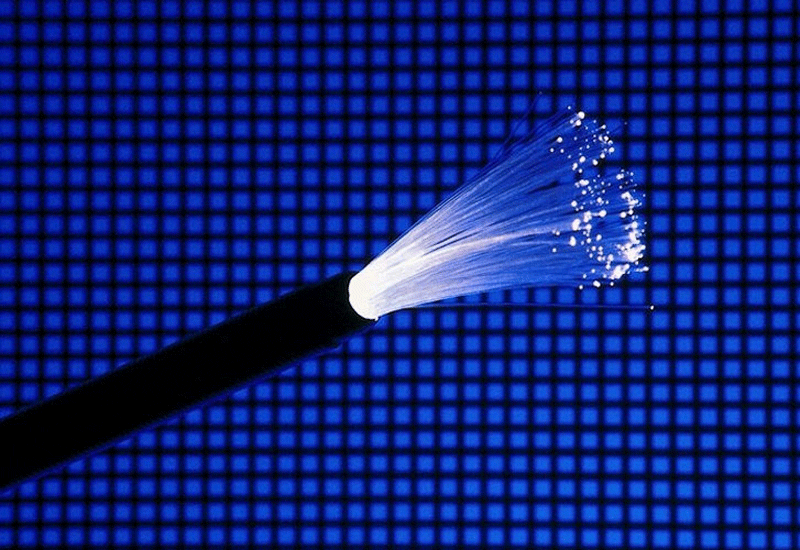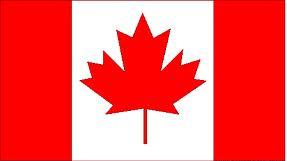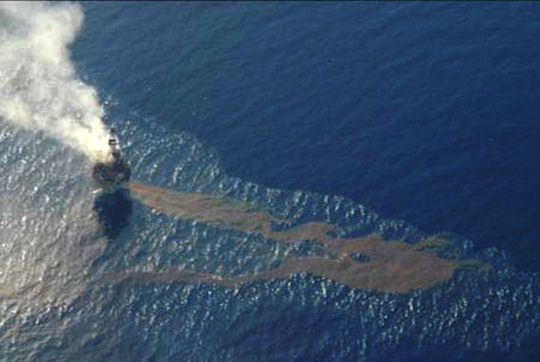|
|
|
|
|
|
|
|
No Arctic-science events are scheduled for today.
|
Media
 State: Permafrost [Thaw] From Arctic Broadband Projects Violated Permits. State: Permafrost [Thaw] From Arctic Broadband Projects Violated Permits. Melting permafrost is creating a muddy mess in Alaska's Arctic after two competing broadband projects dug trenches alongside the Dalton Highway for their separate fiber optic cables.The telecommunications competitors leading those projects - Quintillion Networks and a subsidiary of GCI Liberty - are now embroiled in a legal dispute over who is to blame. Alaska Public Radio
Eavesdropping on the Arctic: Automated Bioacoustics Reveal Dynamics in Songbird Breeding Phenology. Bioacoustic networks could vastly expand the coverage of wildlife monitoring to complement satellite observations of climate and vegetation. This approach would enable global-scale understanding of how climate change influences phenomena such as migratory timing of avian species. The enormous data sets that autonomous recorders typically generate demand automated analyses that remain largely undeveloped. We devised automated signal processing and machine learning approaches to estimate dates on which songbird communities arrived at arctic breeding grounds. Acoustically estimated dates agreed well with those determined via traditional surveys and were strongly related to the landscape's snow-free dates. We found that environmental conditions heavily influenced daily variation in songbird vocal activity, especially before egg laying. Our novel approaches demonstrate that variation in avian migratory arrival can be detected autonomously. Large-scale deployment of this innovation in wildlife monitoring would enable the coverage necessary to assess and forecast changes in bird migration in the face of climate change. Science Advances
 Canadian Coast Guard 2018 Arctic Season Underway. Canadian Coast Guard 2018 Arctic Season Underway. The Canadian Coast Guard's annual Arctic operational season is underway and includes a maiden voyage to the Arctic by the CCGS Samuel Risley. The season will run into late November, providing extended vessel presence in the Arctic under investments from the $1.5-billion Oceans Protection Plan. The CCGS Samuel Risley will depart July 11 from Quebec City for her maiden voyage to Arctic waters, where she will participate in Operation Pacer Goose, which is the annual resupply mission for the Thule US Air Force base in Greenland. NewsWire
Arctic Icebreakers Continue Navigation in Complicated Ice Conditions. Russia's nuclear fleet authority, Atomflot, extended navigation for icebreakers in the Arctic due to the complicated ice conditions along the Northern Sea Route, the authority's press service said on Wednesday. "The complicated ice situation has caused the extended winter-spring navigation for Atomflot's nuclear icebreakers," the press service said. TASS
|
|
Future Events
5th European Conference on Permafrost, June 23-July 1, 2018 (Chamonix-Mont Blanc, France). In the continuation of the International and Regional conferences convened by the International Permafrost Association, the 5th European Conference on Permafrost (EUCOP 2018) will be held in Chamonix-Mont Blanc, France, 23rd June - 1st July 2018. The conference aims at covering all relevant aspects of permafrost research, engineering and outreach on a global and regional level. Conference website: here.
Arctic Observing Summit 2018, June 24-26, 2018 (Davos, Switzerland). The Arctic Observing Summit (AOS) is a high-level biennial summit that provides a platform to address urgent and broadly recognized needs of Arctic observing across all components of the Arctic system. AOS 2018 will be held in Davos, Switzerland ( June 24-26) and will focus on pressing issues in the implementation and support of sustained observations that can be addressed through a business-case lens. To that end, short submissions are requested that address any and all aspects of the overarching theme and sub-themes. Additional information can be found here.
 Coastal Response Research Center Requests Input on the State of Science on Dispersant Use in the Arctic. The Coastal Response Research Center (CRRC) recently collected statements and reports on five topic areas related to dispersant use in the Arctic: efficacy and effectiveness; physical transport and chemical behavior; degradation and fate; eco-toxicity and sublethal impacts; and, public health and food safety. CRRC request written input on the statements the scientists made on the state-of-the-science regarding dispersant use, particularly as it applies to Arctic waters. Written comments are requested by July 13th. More information on this initiative is available here. Coastal Response Research Center Requests Input on the State of Science on Dispersant Use in the Arctic. The Coastal Response Research Center (CRRC) recently collected statements and reports on five topic areas related to dispersant use in the Arctic: efficacy and effectiveness; physical transport and chemical behavior; degradation and fate; eco-toxicity and sublethal impacts; and, public health and food safety. CRRC request written input on the statements the scientists made on the state-of-the-science regarding dispersant use, particularly as it applies to Arctic waters. Written comments are requested by July 13th. More information on this initiative is available here.
17th International Congress of Circumpolar Health (ICCH17), August 12-15, 2018 (Copenhagen, Denmark). The ICCH congresses are held every third year in different locations in the circumpolar area and represent the largest scientific meetings worldwide on circumpolar health. The ICCH congresses serve as the primary source of information exchange and scholarly communication in issues relating to circumpolar health. More than 750 participants generally register and participate in each Congress, and more than 400 scientific papers or posters are usually presented.
UArctic Congress 2018, September 3-7, 2018 (Oulu and Helsinki, Finland). The UArctic Congress 2018 will bring together key UArctic meetings and a science conference into one single gathering, including business meetings of the Council of UArctic, Rectors' Forum, Student Forum, and Thematic Networks & UArctic Institutes Leadership Team. The Congress is an integral part of the Finland's Arctic Council chairmanship program, and open to the public. The event will highlight the themes and priorities of the Finnish chairmanship, including the goals of the United Nations' 2030 Agenda for Sustainable Development, and the Paris Agreement under the UN Framework Convention on Climate Change.
Scientific Exploration of the Arctic and North Pacific (SEA-NorP), September 25-27, 2018 (Mt. Hood, Oregon USA). This workshop will include discussion of hypotheses that can be tested by scientific drilling in the region, the technology necessary to achieve those goals, ideal sites for drilling based on existing data, and where additional site survey data is needed. The goal of the workshop organizers is that multiple proposals will be initiated at the workshop, both for full cruise legs and for shorter, targeted expeditions around the following themes: ocean gateways, geohazards, volatile cycling, ice histories at transition zones, biosphere and climate.
The second Arctic Biodiversity Congress is hosted by the Conservation of Arctic Flora and Fauna (CAFF), the biodiversity working group of the Arctic Council, and the Ministry of the Environment, Finland. The second Arctic Biodiversity Congress will build on the success of the first Congress, held in 2014 in Trondheim, Norway, and will bring together scientists, policymakers government officials, Indigenous representatives, Traditional Knowledge holders, industry, non-governmental organizations, and others to promote the conservation and sustainable use of Arctic biodiversity.
|
|

  
4350 N. Fairfax Drive, Suite 510
Arlington, VA 22203, USA
External links in this publication, and on the USARC's World Wide Web site ( www.arctic.gov) do not constitute endorsement by the US Arctic Research Commission of external Web sites or the information, products or services contained therein. For other than authorized activities, the USARC does not exercise any editorial control over the information you may find at these locations. These links are provided consistent with the stated purpose of this newsletter and the USARC Web site.
|
|
|
|
|
|
|
|
|
 State: Permafrost [Thaw] From Arctic Broadband Projects Violated Permits. Melting permafrost is creating a muddy mess in Alaska's Arctic after two competing broadband projects dug trenches alongside the Dalton Highway for their separate fiber optic cables.The telecommunications competitors leading those projects - Quintillion Networks and a subsidiary of GCI Liberty - are now embroiled in a legal dispute over who is to blame. Alaska Public Radio
State: Permafrost [Thaw] From Arctic Broadband Projects Violated Permits. Melting permafrost is creating a muddy mess in Alaska's Arctic after two competing broadband projects dug trenches alongside the Dalton Highway for their separate fiber optic cables.The telecommunications competitors leading those projects - Quintillion Networks and a subsidiary of GCI Liberty - are now embroiled in a legal dispute over who is to blame. Alaska Public Radio Canadian Coast Guard 2018 Arctic Season Underway. The Canadian Coast Guard's annual Arctic operational season is underway and includes a maiden voyage to the Arctic by the CCGS Samuel Risley. The season will run into late November, providing extended vessel presence in the Arctic under investments from the $1.5-billion Oceans Protection Plan. The CCGS Samuel Risley will depart July 11 from Quebec City for her maiden voyage to Arctic waters, where she will participate in Operation Pacer Goose, which is the annual resupply mission for the Thule US Air Force base in Greenland. NewsWire
Canadian Coast Guard 2018 Arctic Season Underway. The Canadian Coast Guard's annual Arctic operational season is underway and includes a maiden voyage to the Arctic by the CCGS Samuel Risley. The season will run into late November, providing extended vessel presence in the Arctic under investments from the $1.5-billion Oceans Protection Plan. The CCGS Samuel Risley will depart July 11 from Quebec City for her maiden voyage to Arctic waters, where she will participate in Operation Pacer Goose, which is the annual resupply mission for the Thule US Air Force base in Greenland. NewsWire

